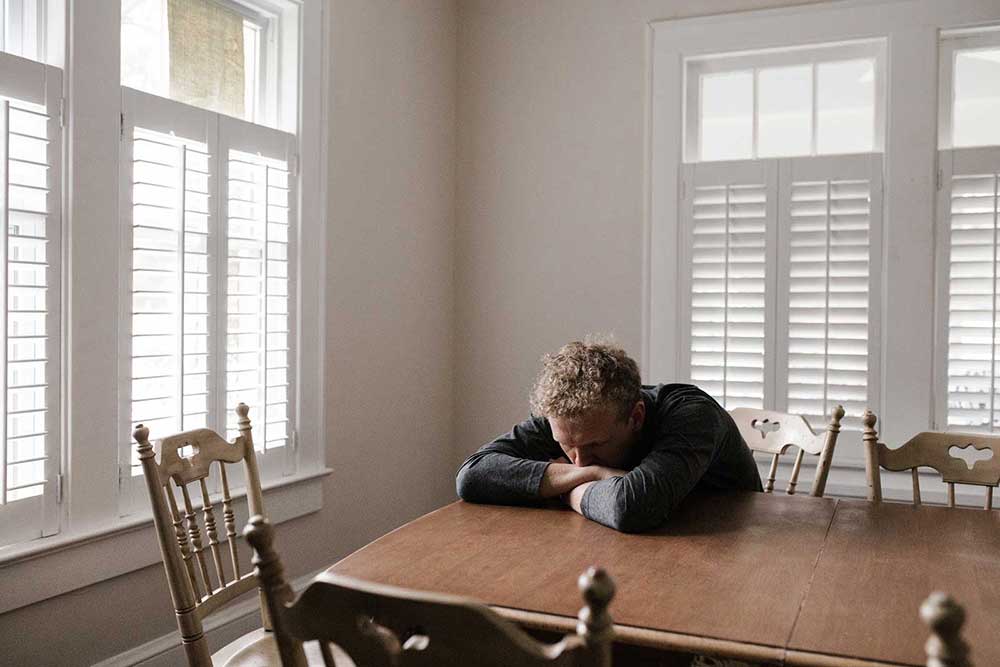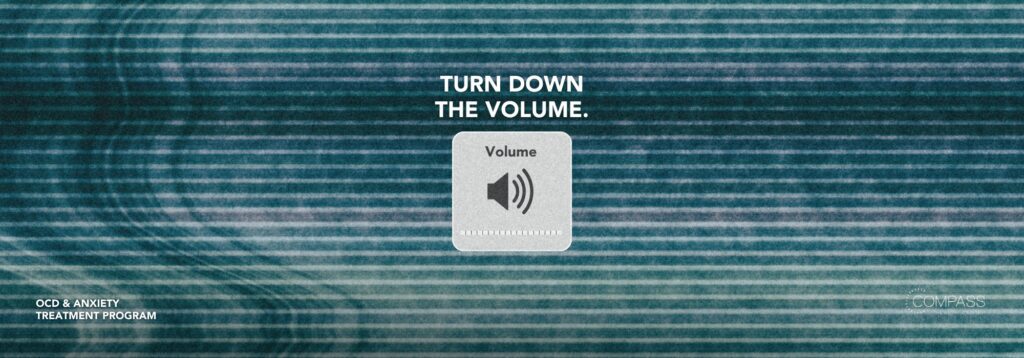
How Exposure & Response Prevention (ERP) Treats OCD at Compass Health Center
Oftentimes, Obsessive-Compulsive and Complex Anxiety disorders (OCD) can influence the way individuals engage with life and how they choose to respond in challenging situations. Individuals often feel disturbed by the thoughts their mind generates and distressed by the rules their anxiety prescribes. According to the US National Library of Medicine, Exposure and Response Prevention Therapy (ERP) is one of the most effective forms of treatment for OCD.
Let’s take an in-depth look at ERP Therapy and understand why it works for OCD.
Why Exposure and Response Prevention Works for OCD
The intention behind Exposure and Response Prevention (ERP) Therapy is to help individuals learn to tolerate, rather than get rid of, distressing thoughts or physical sensations and live out a meaningful, values-based life despite their anxiety.
In practice, ERP involves purposefully and repeatedly coming into contact with fears (exposure) without the use of anxiety-reducing tactics (response prevention). Exposures are repeated until new learning about the fear or anxiety is generated.
Inhibitory Learning in Exposure and Response Prevention
This concept of inhibitory learning helps feared objects and situations become more ambiguous, as individuals learn their worst-case predictions are unlikely to occur, or that they can handle them more effectively than expected. Ultimately, when individuals face their fears in the future, both the original anxious thought and the newly learned thought are activated, and the fear becomes more neutral. As a result, individuals sometimes experience habituation or a decrease in their anxiety after repeated exposure. ERP has been proven to be an effective treatment for obsessive-compulsive disorder, generalized anxiety disorder, panic disorder, social anxiety disorder, illness anxiety, and specific phobias.
Exposure and Response Prevention Therapy can help individuals learn:
- Anxiety often predicts far worse outcomes (internally and externally) than reality proves
- Even when undesirable outcomes occur, individuals can manage the experience more effectively than they typically believe
- Individuals can live out a meaningful, values-driven life in the face of anxiety
Individuals work with their therapist to create a hierarchy of fears, ranked from least to most anxiety-provoking. This guide helps navigate treatment, as individuals gradually move from lower-ranking exposures to more challenging ones. Individuals will progress through exposures at a pace that feels both manageable and challenging; they will never be asked to do anything unreasonable or that they are unwilling to do.
Types of Exposures in ERP
Various types of exposures are implemented during the course of Exposure and Response Prevention Therapy, depending on the nature of the individual’s anxiety. Engaging in exposures in a variety of contexts and ways helps generalize learning in a way that is long-lasting.
Types of exposures include:
In Vivo Exposures
Direct exposure to a feared object or situation, i.e. for OCD, an individual may touch a doorknob in a public space without washing their hands after.
Interoceptive Exposures
Intentional activation of physical sensations of panic/anxiety, i.e. running in place to increase heart rate or spinning in a chair to elicit dizziness
Imaginal Exposures
A written or recorded detailed account of an individual encountering the feared situation, i.e. a script about being fired from one’s job.
Commonly Asked Questions About Exposure and Response Prevention Therapy
Why engage in ERP instead of talk therapy?
ERP has been repeatedly proven to be the ‘gold standard’ for the treatment of OCD and complex anxiety disorders. In traditional talk therapy or psychotherapy, your therapist will help you gain awareness and insight into your mental health condition by implementing evidence-based modalities. While it has shown impressive results in improving symptoms of a wide range of mental health conditions, talk therapy is not as effective as ERP in addressing active symptoms of OCD.
ERP Therapy provides structured, real-life opportunities to practice experiencing anxiety in a new, more productive way that is generalizable and long-lasting.
How do I know if I need individual ERP versus a higher level of care?
For individuals whose anxiety or OCD is impacting their daily functioning, or for those who are not seeing improvement with weekly outpatient sessions, a higher level of care may be indicated. If you are having a hard time managing work, school, and/or activities of daily living as a result of your anxiety, PHP or IOP might be helpful. Call Compass to schedule an intake with an OCD & Complex Anxiety specialist for a more tailored treatment recommendation.
How long is the typical length of treatment?
Individuals who begin at the PHP level of care are typically in program for about 3-4 weeks and then transition to IOP for another 4-6 weeks. Individuals who begin at the IOP level of care are typically in treatment for 6-8 weeks. The length of treatment is individualized and determined through collaboration with the individual and their treatment team.
Exposure and Response Prevention at Compass
Our Compass Health Center facilities in Chicago and Northbrook offer an OCD and Complex Anxiety Program that provides a comprehensive range of therapy techniques, including exposure and response prevention.
“The best part about being an exposure therapist is teaching people the tools they need to start relating to their anxiety in a different way and seeing things ‘click’ as they develop an exposure mindset approach to living. They begin to take on new challenges and build confidence in their abilities in real-time. They stop letting their anxiety dictate what they do and start living more by their values – it’s inspiring!”
– Talia Stoehr, LCSW, Primary Therapist in the Chicago and Virtual OCD & Complex Anxiety Program
Contact Us to See if ERP is a Good Fit For You
If you feel like your OCD and Anxiety are preventing you from fulfilling your daily routines, call us today. One of our highly trained staff will get back to you as soon as we can so that we can start discussing your symptoms. From there, we can determine if Exposure and Response Prevention Therapy is a recommended treatment for you.




